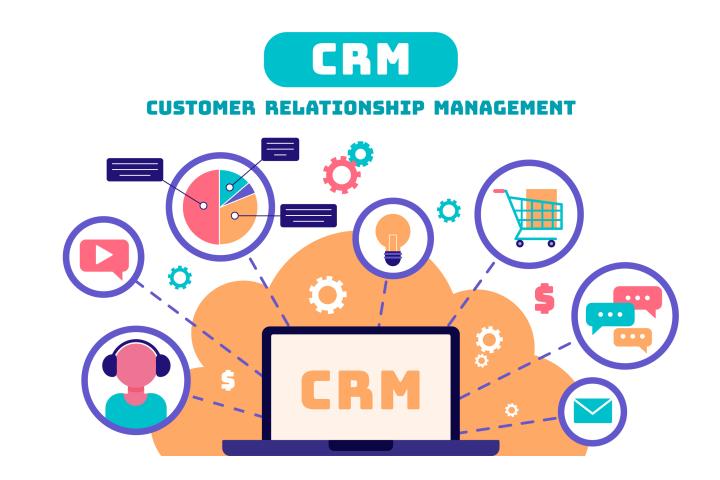In the world of digital finance and trading, exchange platforms play a crucial role in facilitating transactions, trading assets, and ensuring liquidity. Behind these sophisticated platforms lies the expertise of exchange development companies, which specialize in designing and building these complex systems. This article explores how an exchange development company operates, the processes involved, and the key considerations for creating a successful exchange platform.
What is an Exchange Development Company?
An exchange development company focuses on designing, developing, and maintaining trading platforms. These platforms can range from cryptocurrency exchanges and stock trading systems to commodity trading and forex platforms. The primary goal of these companies is to create robust, secure, and user-friendly platforms that meet the specific needs of their clients and end-users.
Key Services Offered by Exchange Development Companies
Custom Software Development
- At the core of their services, exchange development companies offer custom software development tailored to the specific needs of their clients. This includes designing the user interface, developing the backend systems, and integrating various functionalities required for the exchange to operate smoothly.
Security Solutions
- Security is paramount in any exchange platform due to the high value and sensitivity of the data and assets involved. Exchange development companies implement advanced security measures, such as encryption, multi-factor authentication, and regular security audits, to protect the platform from potential threats and breaches.
Liquidity Management
- Effective liquidity management is crucial for the success of an exchange platform. Exchange development companies provide solutions to ensure there is enough liquidity on the platform, including integration with liquidity providers and the implementation of algorithms to manage order matching and execution.
Regulatory Compliance
- Compliance with regulatory requirements is essential for operating an exchange platform, especially in the financial sector. Exchange development companies help clients navigate complex regulatory landscapes, ensuring that the platform adheres to relevant laws and guidelines.
Integration with Payment Gateways
- To facilitate seamless transactions, exchange platforms need to integrate with various payment gateways. Exchange development companies handle these integrations, allowing users to deposit and withdraw funds using different payment methods.
User Experience Design
- A user-friendly interface is vital for the success of any trading platform. Exchange development companies focus on creating intuitive and responsive designs that enhance the user experience, making it easier for traders and investors to navigate the platform and execute transactions.
The Development Process
The development of an exchange platform involves several stages, each of which is crucial for ensuring the platform's success.
Requirement Analysis
- The first step in the development process is understanding the client's requirements. This involves gathering detailed information about the client's goals, target audience, desired features, and regulatory considerations. This stage is critical for creating a development plan that aligns with the client's vision.
Design and Prototyping
- Once the requirements are defined, the design phase begins. This involves creating wireframes and prototypes of the platform to visualize its layout, functionality, and user interface. Feedback from the client is gathered during this stage to refine and finalize the design.
Development
- With the design in place, the development team begins building the platform. This includes coding the frontend and backend systems, integrating various functionalities, and ensuring that the platform is scalable and secure. The development process is iterative, with regular testing and feedback loops to address any issues that arise.
Testing
- Rigorous testing is essential to ensure the platform's reliability and performance. Exchange development companies conduct various types of testing, including functional testing, performance testing, security testing, and user acceptance testing. This helps identify and resolve any issues before the platform goes live.
Deployment
- After successful testing, the platform is deployed to a live environment. Exchange development companies oversee the deployment process, ensuring that the transition is smooth and that the platform operates as expected.
Maintenance and Support
- Post-launch support is critical for addressing any issues that may arise and for implementing updates and improvements. Exchange development companies provide ongoing maintenance and support services to ensure the platform remains functional, secure, and up-to-date.
Key Considerations for a Successful Exchange Platform
Security
- Security cannot be overstated in the development of an exchange platform. Given the high stakes involved, implementing robust security measures is essential for protecting user data and assets.
Scalability
- The platform must be able to handle increasing volumes of transactions and users without compromising performance. Scalability is achieved through efficient architecture and the use of scalable technologies.
Regulatory Compliance
- Adhering to regulatory requirements is crucial for avoiding legal issues and ensuring the platform operates within the law. Exchange development companies must stay informed about regulatory changes and incorporate them into the platform.
User Experience
- A seamless and intuitive user experience is vital for attracting and retaining users. The platform should be designed with the end-user in mind, providing a smooth and enjoyable trading experience.
Liquidity Management
- Ensuring adequate liquidity is key to the platform's success. Effective liquidity management strategies and integrations with liquidity providers help maintain a healthy trading environment.
Conclusion
Exchange development companies play a pivotal role in the creation and maintenance of trading platforms. Their expertise in custom software development, security, liquidity management, regulatory compliance, and user experience design ensures that these platforms operate efficiently and securely. Understanding the processes involved in exchange development and the key considerations for success can help clients make informed decisions when selecting a development partner and launching their trading platforms.
Whether you're looking to build a cryptocurrency exchange, a stock trading system, or any other type of exchange platform, working with a skilled exchange software development company can make all the difference in achieving your goals and ensuring a successful launch.










